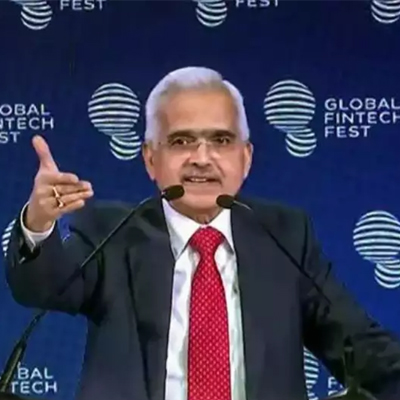AI and Machine Learning: The Future of Fraud Detection in Health Insurance

Dr Abhijeet Vikram Ghosh, Head of Claims, Retail Underwriting & Fraud Control, Aditya Birla Health Insurance Company Limited
Health insurance fraud is an alarming problem for insurance companies and the healthcare system, resulting in financial losses and decreased efficiency. Traditional approaches for detecting such fraud are often slow, reactive, and require significant manual work. However, artificial intelligence (AI) and machine learning (ML) are emerging as transformative tools capable of revolutionising health insurance fraud detection and prevention. This breakthrough in technology allows for a more proactive and efficient approach to ensuring the integrity of the healthcare system.
IBM's Cost of a Data Breach Report 2023 found that enterprises that actively deploy security AI and automation save an average of USD 1.76 million compared to those that do not.
Understanding AI and Machine Learning in Fraud Detection
Artificial intelligence (AI) is the development of intelligent systems that can mimic human cognitive functions like learning, reasoning, and problem-solving. Machine learning (ML), a subfield of artificial intelligence, uses algorithms that learn from large datasets to discover patterns and make predictions without explicit programming.
In the case of healthcare fraud detection, AI/ML systems use enormous datasets of historical claims data, including medical records, provider information, and intricate billing details. By evaluating this data, algorithms can detect anomalies and odd trends that may indicate fraudulent behaviour. For example, an AI system may detect claims with excessively high costs for certain services, duplicate billing for identical treatments on the same day, or discrepancies in patient information. This ability to examine complicated data points and detect minor red flags positions AI/ML to be a significant tool in the battle against healthcare fraud.
“AI and ML usher in a new era of healthcare security, fostering collaboration in the fight against fraud." - Dr Abhijeet Vikram Ghosh
How AI and ML Revolutionise Health Insurance Fraud Detection
AI and ML offer several key advantages over traditional methods of fraud detection:
Real-time Analysis
AI and ML can instantly analyse massive datasets, pinpointing suspicious activity in real time. This eliminates delays compared to manual reviews.
Predictive Power
ML algorithms learn from past data to predict future fraud. This proactive approach allows healthcare organisations to take preventive measures and prevent fraud before it occurs.
Advanced Anomaly Detection
AI/ML goes beyond traditional methods by analysing complex data points like unusual billing practices, geographical inconsistencies, and provider behaviour patterns, identifying red flags that might indicate fraud.
Automated Claim Review
AI automates claim review, flagging high-risk claims for further investigation. This frees up human investigators to focus on complex cases and develop more effective investigative strategies.
Improved Efficiency and Accuracy
AI/ML automates many of the tedious and time-consuming tasks associated with traditional fraud detection, allowing investigators to work more efficiently. Additionally, AI/ML algorithms can detect fraud with greater accuracy than human reviewers, reducing both false positives (denying legitimate claims) and false negatives (missing fraudulent claims).
According to a 2021 poll conducted by the Healthcare Information and Management Systems Society (HIMSS), more than 70% of health insurance companies are now employing or planning to implement AI and ML technologies for fraud detection and prevention.
This shift empowers healthcare stakeholders to proactively combat fraud, save valuable resources, and ensure a more sustainable healthcare system.
Benefits of AI and ML in Health Insurance Fraud Detection
The implementation of AI and ML in healthcare fraud detection offers significant benefits for all stakeholders involved:
Reduced healthcare costs
By minimising fraudulent claims, AI/ML can help lower overall healthcare costs for insurance companies, which ultimately translates to lower premiums for policyholders.
Improved Efficiency
Automating claim review and focusing resources on high-risk cases saves healthcare organisations and insurance companies time and money.
Faster detection and prevention
Real-time analysis and predictive capabilities allow for earlier intervention and prevention of fraud, minimising financial losses.
Enhanced security and compliance
AI/ML can identify potential security breaches and assist in compliance with healthcare regulations related to fraud detection.
Challenges and Considerations for AI and ML Adoption
Despite the numerous benefits, implementing AI and ML in healthcare fraud detection presents certain challenges. By addressing these, stakeholders can leverage the full potential of AI and ML to combat healthcare fraud.
Data quality and security
The effectiveness of these models hinges on the quality and security of the training data. Inconsistent or inaccurate data leads to biased models and inaccurate fraud detection. Ensuring data integrity and maintaining robust cybersecurity protocols are paramount.
Algorithmic Bias
Bias within training data can create biased algorithms that unfairly flag certain demographics or medical conditions. Careful selection and continuous monitoring of data are essential to mitigate bias and ensure fairness in fraud detection.
Integration and Implementation
Seamless integration with existing healthcare infrastructure requires careful planning. This includes ensuring compatibility with legacy systems and data formats, along with user training and change management strategies to facilitate user adoption.
Transparency and explainability
Transparency in how AI and ML algorithms reach decisions is crucial. This fosters trust with healthcare providers, patients, and regulators. Explainable AI (XAI) techniques can help stakeholders understand the rationale behind the algorithms' decisions, promoting fairness and building a foundation for trust.
The Way Forward: A Collaborative Approach
While challenges remain, such as data quality, algorithmic bias, and integration barriers, a collaborative strategy can pave the way for success. Healthcare organisations, insurance companies, and technology suppliers must all collaborate to create secure and effective AI/ML solutions. Transparency in how these algorithms make judgements is critical for establishing confidence with stakeholders.
As AI and machine learning technologies improve, their role in combating healthcare fraud will become increasingly important. Using these strong technologies, we can create a more robust and efficient system to conserve vital resources, ensuring the healthcare system's sustainability for future generations. This is not only a technological advancement but a collaborative victory in ensuring the integrity of healthcare for everybody.
The Journey Into Industry
Dr. Abhijeet Vikram Ghosh stands out as a leading authority in health insurance, currently serving as the Head of Claims, Retail Underwriting, and Fraud Control. He is acclaimed for his thought leadership and effective execution, blending his medical and technical expertise. He specialises in health insurance within the broader general insurance field. Dr. Ghosh has a deep-seated interest in utilising data and advanced modelling techniques to innovate and optimise industry processes.
His strategic initiatives aim to enhance system efficiencies, resulting in faster claim processing, precise underwriting, accurate risk assessment, and optimal product pricing. This approach not only improves operational workflows but also promotes innovation in product development, making healthcare more affordable and accessible while managing risks effectively.
In addition to his technical skills, Dr. Ghosh is a passionate fitness ambassador, advocating for health and wellness in both his personal and professional life. His leadership is characterised by the integration of comprehensive knowledge with practical implementation, driving significant advancements in the health insurance sector. Through his efforts, he develops unique solutions and products that enhance industry standards, ensuring efficient and reliable healthcare delivery. Dr. Ghosh's work is instrumental in transforming health insurance practices, significantly benefiting both organisations and customers alike.
.jpg)
.jpg)
.jpg)
.jpg)



